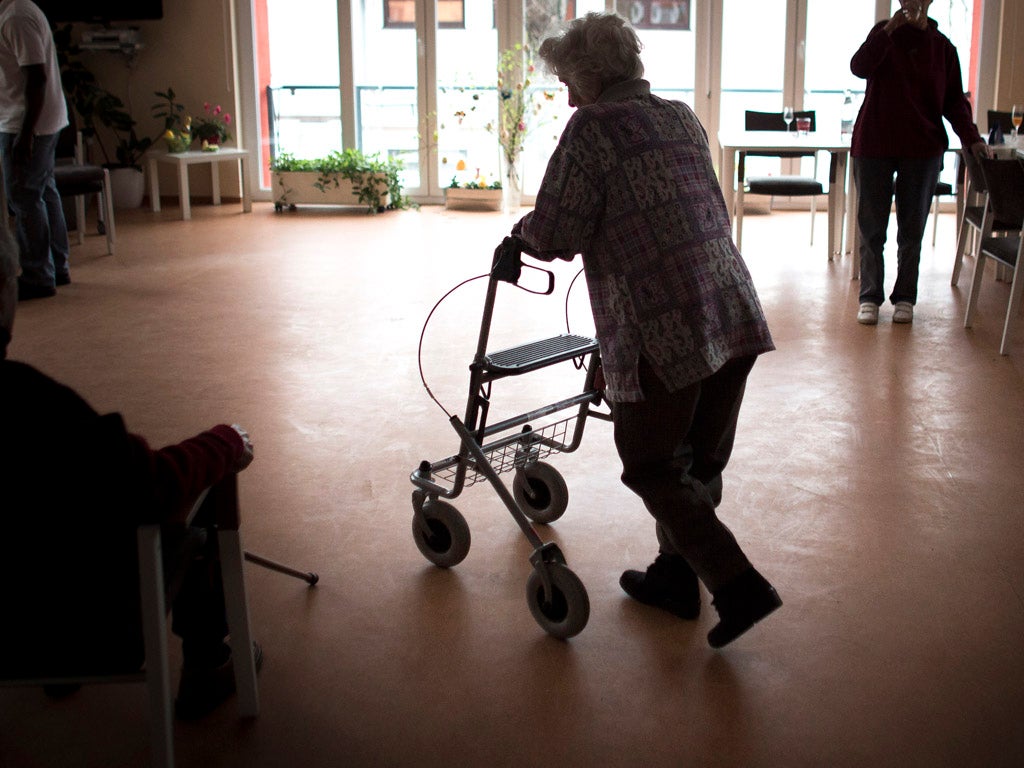The UK isn't a nice place to grow old. But we can begin to change this by taking dementia seriously
It's estimated that the health and economic costs are £23 billion a year in the UK, but only 2.5 per cent of the government’s medical research budget is spent on dementia

I got used to answering to lots of names. Gran would recite a roll-call of relatives every time I popped round, starting with my granddad and working her way down the years till she sometimes, eventually, got to me. I didn't mind. She knew my face, knew I was someone important to her. The rest were just minor details.
Memory loss doesn’t always have to be a barrier. You adapt, and stop reminding your grandmother that her husband died seven years ago, because it hurts with the same brutal tragedy every time. He’s in the greenhouse, he’ll be back soon. The memory fades, and gran returns to negotiating a jam laden scone with shaking hands.
On December 11 London hosts the G8 dementia summit. The most powerful nations will try to tackle the most taboo of subjects. “It’s a bit like cancer in the 1960s” says Health Secretary Jeremy Hunt, comparing dementia to a diagnosis that doctors used to give without even mentioning its name. I’ve heard stories of family members who knew of an elderly patient’s cancer long before they knew themselves. It’s better they don’t know, doctors would say. It would only upset them.
Sometimes that’s true, but not often. Because when you don’t talk about something, it gets scary. Myths grow, whispers spread. We tried to ignore cancer but it didn’t go away. So we grew up. We stopped being scared of monsters and started trying to fight them instead.
Hunt wants the UK to be “the best place in the world to grow old in.” The Health Secretary has positioned himself as a champion of the older person. He’s been saying all the right things, from the importance of tackling loneliness in old age to prioritising social care just as much as medicine. But to fight dementia, we need more than words. Just two and a half percent of the government’s medical research budget is spent on dementia. Twenty-five percent is spent on cancer. They are equally pernicious, but one has ten times the funding of the other.
This isn’t a question of impact. Between 70 and 80 percent of the 422,000 people living in UK care homes have dementia, and up to one in four hospital beds are occupied by an older person with the disease. The charity Alzheimer’s Research estimates that the health and economic costs of dementia are £23 billion a year in the UK, compared to £15 billion for cancer. The discrepancy in funding just doesn’t add up.
We’ve already glimpsed at the potential for a promising future. Recent groundbreaking international research has significantly increased our understanding of dementia, doubling the number of known genetic links to the disease. In October this year, a breakthrough study by the University of Leicester demonstrated that a brain-protecting compound could stop mice from developing Alzheimer’s disease.
The more we learn, the greater our ability to protect ourselves. The unthinkable might just be possible, and there may one day be treatment for dementia. But this won’t happen without help.
In 2012 the Prime Minister called dementia his “personal priority.” The Health Secretary wants a million people to help support dementia sufferers, harnessing the volunteer spirit of Olympic games makers. The rhetoric is reassuring, but you can't save lives with empty gestures.
Dementia is a terminal disease of the brain. It requires funding in line with other life limiting conditions. This G8 summit is an opportunity for the government to deliver on its promises, and invest in the fight against this devastating disease.

Join our commenting forum
Join thought-provoking conversations, follow other Independent readers and see their replies